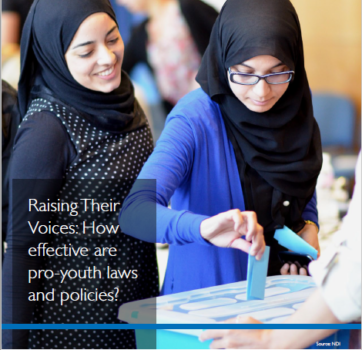With youth now making up more than half of the world’s population, it is critical to engage this demographic in civic and political life. Despite constituting a large portion of the electorate, youth participate politically at very low rates. Pro-youth legal instruments (e.g. lowering age restrictions to vote), intra-party policies (e.g. party youth wings), and other public measures (e.g. adoption of national youth policies) are tactics increasingly employed by governments, political parties, and other electoral stakeholders to encourage youth engagement. As these actors, including international funders, evaluate their investment in these approaches, they lack empirical evidence on the efficacy of legal instruments, intra-party policies, and public measures in promoting youth engagement. In response, CEPPS has developed a youth-focused reference tool for practitioners, to advance the democracy, human rights, and governance community of practice concerning youth engagement.
In order to address these core research questions, CEPPS:
DELIVERABLE

Raising Their Voices: How effective are pro-youth laws and policies?
The final, published product is a critical guide to increase the capacity of practitioners, local actors, advocates and stakeholders to foster meaningful youth engagement in political and electoral processes. Based on its findings, CEPPS developed recommendations for future assistance programs involving these pro-youth mechanisms
Read the summary here.
Read the full report here.